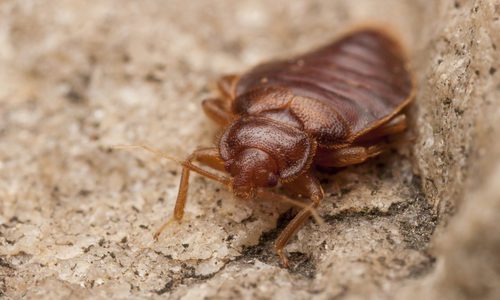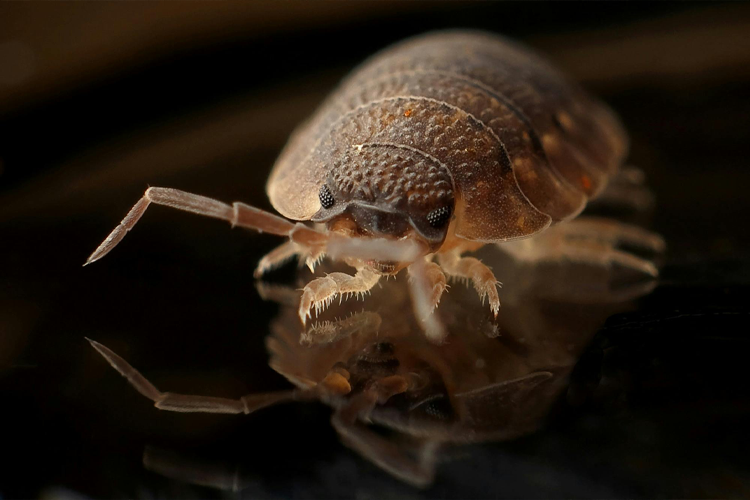Kings Cincinnati Pest Control Companies: Reliable Services
Kings Cincinnati Pest Control Companies: Reliable Services
Blog Article
A Malfunction of the Different Kinds Of Bug Control Solutions
In the world of bug control, a wide variety of techniques exist to attend to and deal with the existence of unwanted creatures. From the conventional use chemical pesticides to extra cutting-edge organic control options, each method provides distinct benefits and constraints. As we browse through the diverse landscape of parasite control remedies, comprehending the ins and outs of each method becomes extremely important in establishing one of the most effective strategy. Remain tuned as we explore the nuanced globe of insect control strategies and uncover exactly how each type plays an one-of-a-kind duty in protecting our environments.
Chemical Pesticides
Chemical chemicals are typically made use of in bug control to effectively get rid of a vast array of insects and various other pests. These pesticides function by targeting the nervous system of the bugs, interrupting their normal features, and eventually bring about their death. The usage of chemical pesticides has been a staple in the bug control sector for decades because of their performance and quick results.

However, it is necessary to make use of chemical pesticides with care due to their potential unsafe results on the atmosphere and non-target species. Inappropriate application or overuse of these chemicals can result in pollution, injury to useful insects, and resistance growth in bug populations. It is essential to adhere to security standards and policies when using chemical pesticides for bug control.
Biological Control Methods
Considering the possible ecological impacts and dangers linked with chemical pesticides, biological control methods use an even more lasting approach to handling bug populaces. Biological control involves the use of all-natural adversaries, such as virus, parasites, and predators, to suppress insect populations. This technique is typically extra targeted, affecting only the specific insect species while decreasing harm to beneficial insects, people, and the atmosphere.

One benefit of organic control is its long-lasting effectiveness. As soon as established, all-natural adversaries can aid manage pest populaces continuously without the demand for repeated applications of pesticides. In addition, biological control is commonly much more economical and can assist minimize pesticide resistance in bug populations with time. Generally, organic control approaches supply a eco friendly and lasting service to pest administration.

Mechanical Pest Control
Mechanical parasite control entails the physical manipulation or removal of insects to manage their populations properly. This method is frequently employed combined with various other insect control methods for comprehensive termite poison bug administration. One common instance of mechanical pest control is making use of traps to capture pests or rats. These traps can be established up in calculated areas where bugs are known to dwell, aiding to minimize their numbers.
Another mechanical approach is using obstacles such as fencings, displays, or webs to obstruct parasites from entering specific areas. By literally preventing pests from accessing a location, the chance of problems or damages can be significantly decreased. Furthermore, hand-operated approaches like handpicking pests off plants or structures can be reliable for smaller-scale infestations.
While mechanical bug control techniques can be labor-intensive, they supply a non-chemical option that can be environmentally friendly and lasting. By targeting insects straight, mechanical control methods can help maintain pest populaces in check without relying click resources upon chemicals.
Natural Solutions
Utilizing all-natural treatments for parasite control offers a sustainable and environmentally friendly technique to taking care of pest populations without resorting to chemical interventions. Natural treatments entail making use of materials originated from plants, minerals, or other naturally occurring sources to discourage or get rid of bugs. Growing particular natural herbs like basil, mint, or lavender around your building can drive away pests due to their solid aromas. Diatomaceous planet, a powder made from fossilized algae, can be utilized to fight insects like ants, cockroaches, and bed bugs by dehydrating their exoskeletons.
In addition, necessary oils such as tea tree oil or neem oil have insecticidal residential or commercial properties that can effectively regulate insects while being safe for the setting. One more all-natural treatment is introducing valuable bugs like ladybugs or praying mantises to your yard to take advantage of hazardous parasites. By integrating these all-natural options into bug management approaches, individuals can lower their reliance on artificial chemicals and promote a much look at this web-site healthier, much more well balanced community.
Integrated Parasite Management
Integrated Parasite Management (IPM) is a thorough method that incorporates various methods to effectively manage pest populaces while minimizing risks to human health and the setting. IPM entails the assimilation of numerous insect control approaches such as organic control, environment control, alteration of social practices, and the use of immune crop varieties. By utilizing a combination of these techniques, IPM intends to decrease dependence on chemical pesticides, which can have adverse influence on ecological communities and human health.
One secret element of IPM is the focus on avoidance. By implementing steps to stop parasite infestations before they happen, such as preserving appropriate hygiene and securing access factors, the need for reactive pest control steps is lessened. Tracking and routine examinations play a crucial role in IPM, enabling early detection of insect issues and prompt intervention.
Conclusion
Finally, the various types of pest control solutions offer a series of alternatives for effectively taking care of parasite problems. Chemical chemicals supply fast elimination however might have ecological threats. Organic control techniques utilize all-natural killers to manage insects. Mechanical pest control involves physical obstacles or catches. Natural remedies supply safe options. Integrated Insect Management incorporates numerous methods for an alternative approach to pest control. Each approach has its very own benefits and downsides, and selecting the most ideal option depends upon the specific parasite issue at hand.
Chemical pesticides are generally utilized in parasite control to efficiently remove a broad array of insects and other parasites.Mechanical insect control entails the physical manipulation or removal of parasites to manage their populaces properly (Kings pest control Cincinnati).Making use of all-natural remedies for insect control uses a environmentally friendly and lasting method to handling parasite populations without resorting to chemical interventions.Integrated Insect Administration (IPM) is a thorough approach that combines various methods to successfully regulate pest populaces while minimizing risks to human health and the environment.In final thought, the different kinds of bug control remedies supply an array of options for effectively managing pest infestations
Report this page